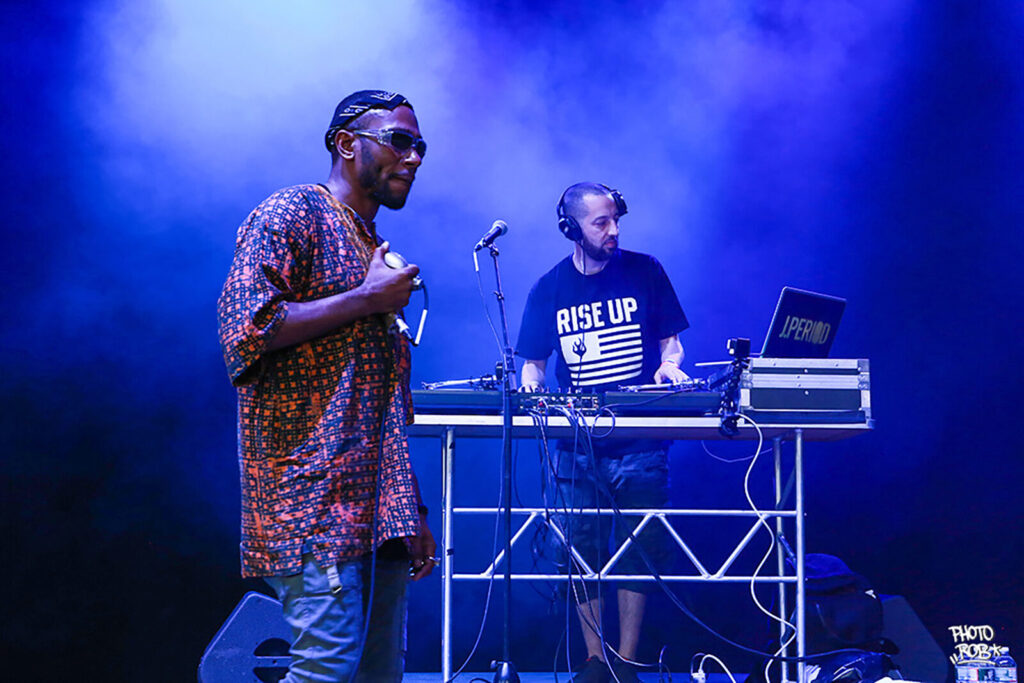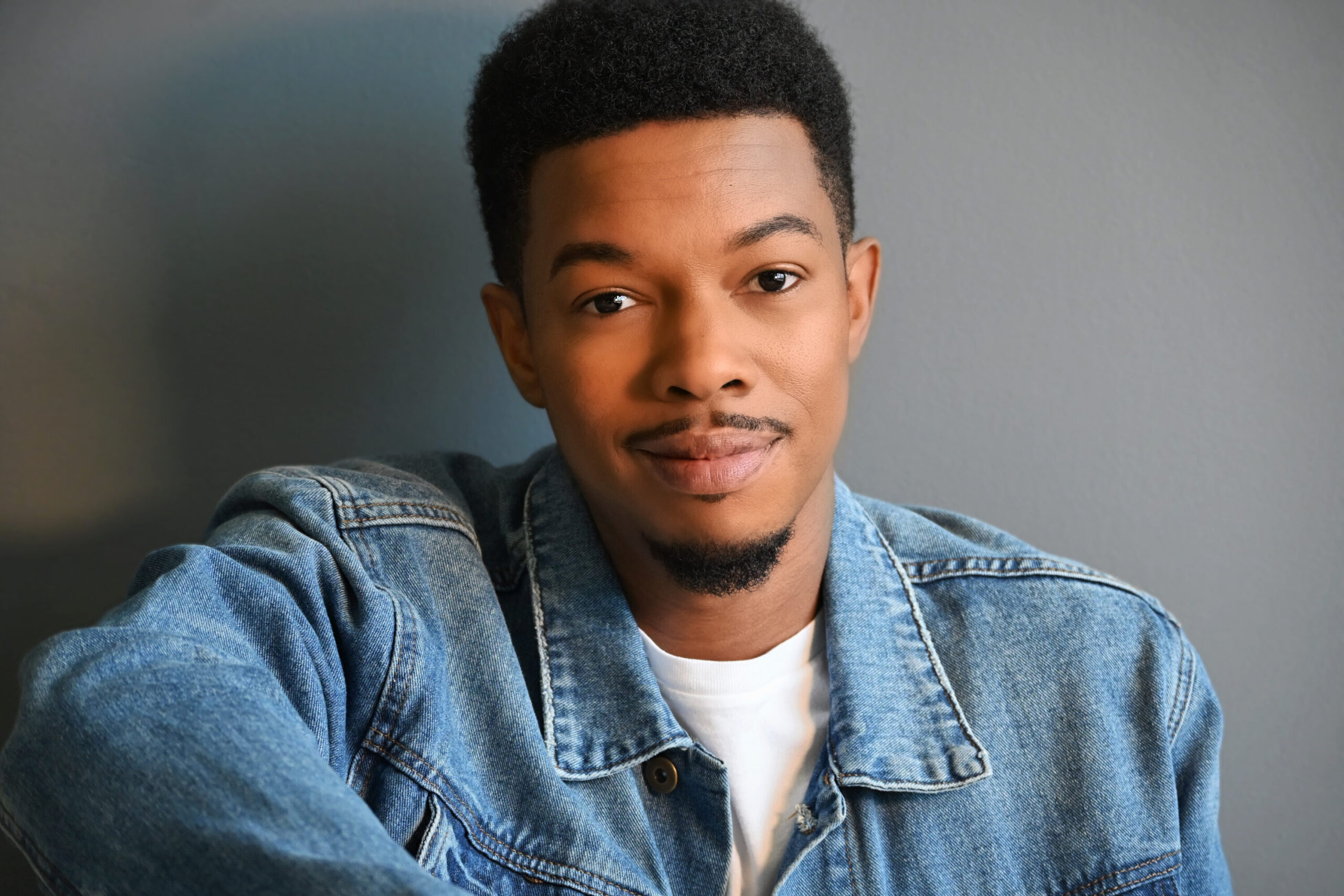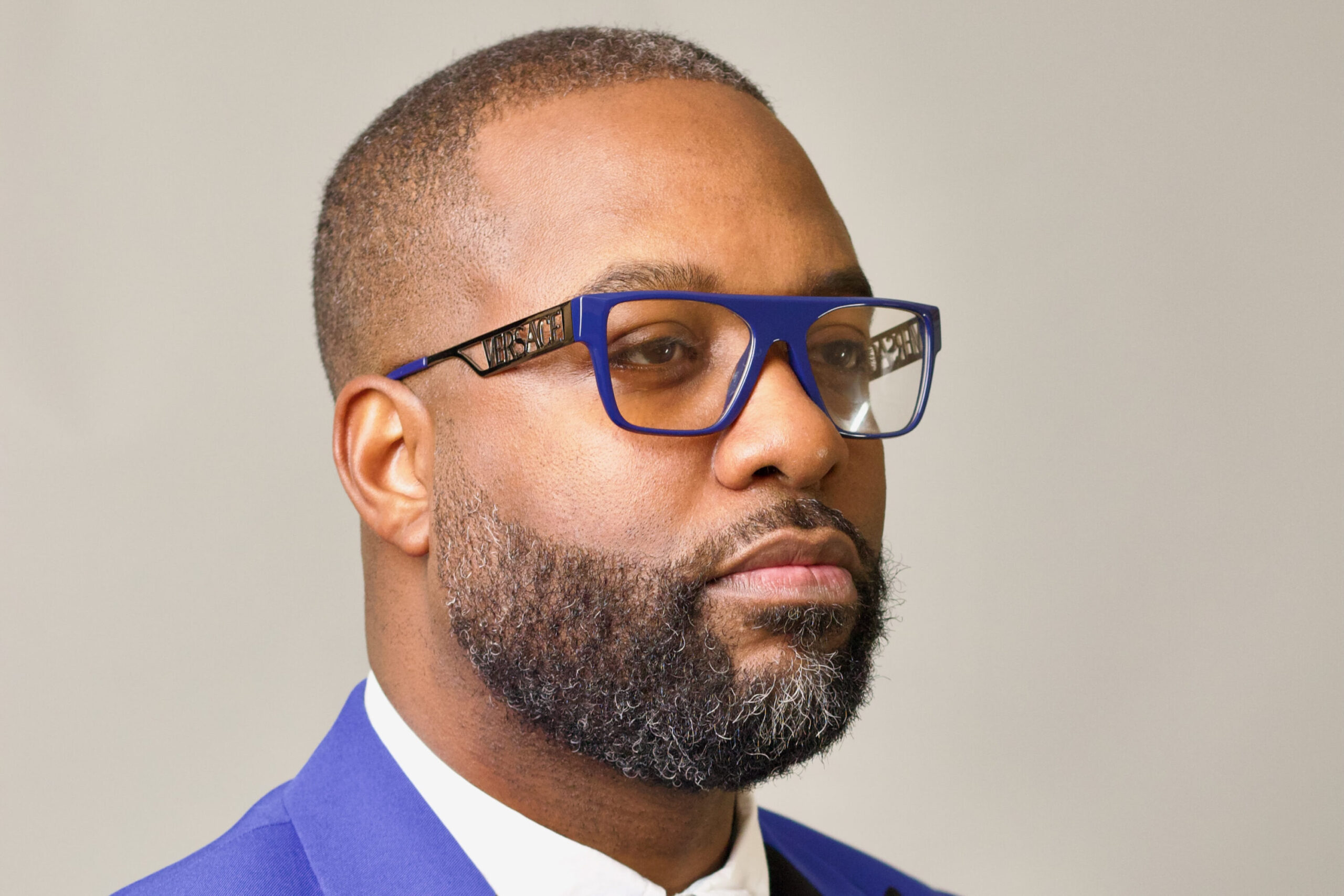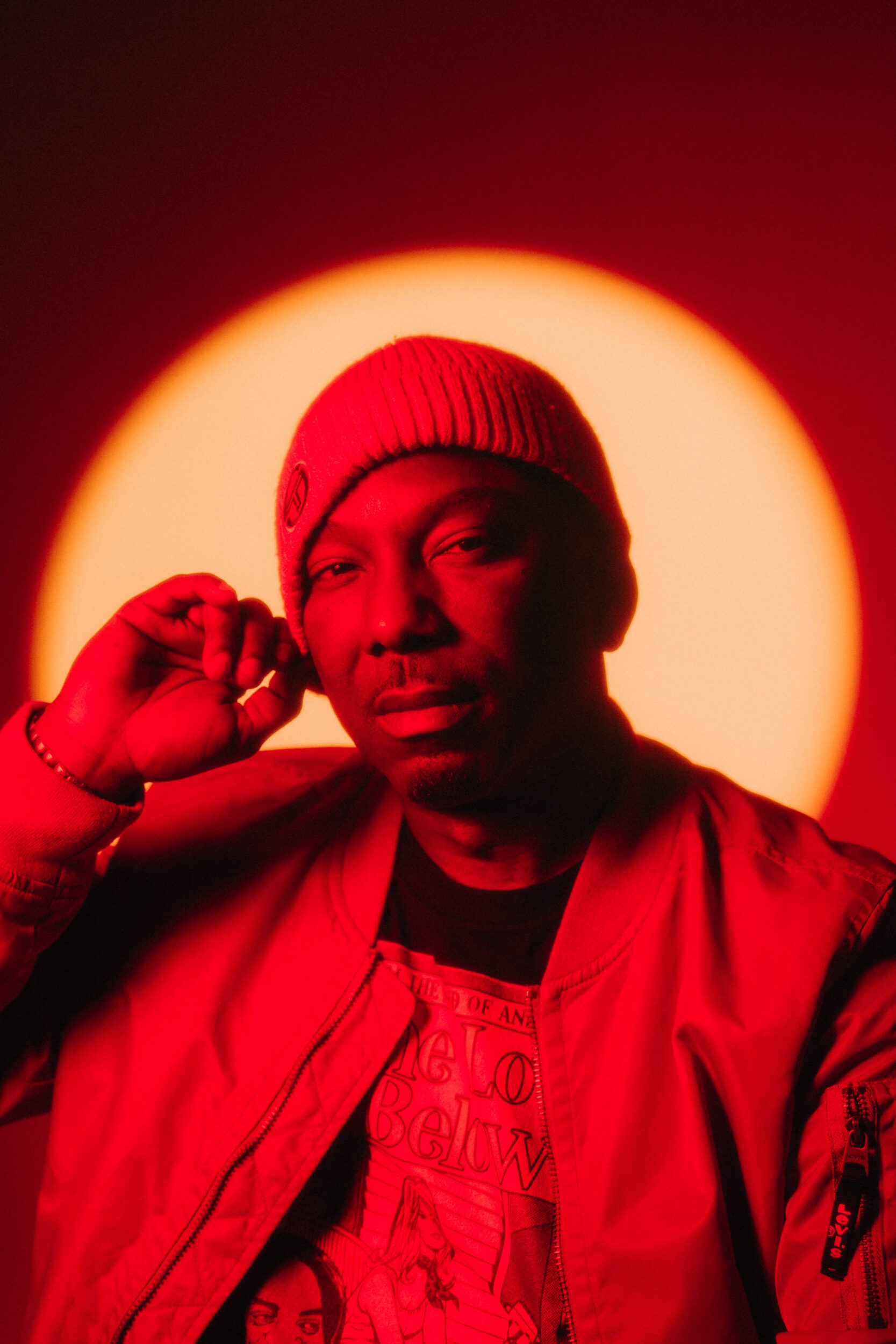J. Period is a DJ, producer, and sonic storyteller whose work has redefined what a mixtape can be. Known for his cinematic blends and “audio documentaries,” he fuses music, narrative, and culture into immersive experiences that celebrate Hip Hop’s legacy while pushing it forward. Over the past two decades, J. Period has collaborated with icons like Nas, Lauryn Hill, The Roots, Black Thought, Q-Tip, and countless others.
His award-winning projects—including The Best of Lauryn Hill, The Best of The Roots, and his “Live Mixtape” concert series—have made him one of the genre’s most innovative bridge-builders between generations of artists and fans.
The Hip Hop Museum caught up with J. Period to talk about orchestrating his live mixtape series, classic projects like ‘The Best of Lauryn Hill’, working with Black Thought, the importance of The Hip Hop Museum and more.
Adam Aziz: Do you remember the first Rap album you bought with your own money?
J. Period: The first album I bought with my own money was a Prince album. But Hip Hop, it was either ‘Raising Hell’ or ‘He’s the DJ, I’m the Rapper.’ Jeff (DJ Jazzy Jeff) has been such an integral part of my story as a DJ.
AA: On your website, there is a quote from Jazzy Jeff that says when it comes to music, you have a different brain. Where does your originality and approach to music come from?
J. Period: A part of it is if you’re schooled in the true principles of Hip Hop, that’s one of the principles, being original. Otherwise, what are you doing here? Big Daddy Kane, A Tribe Called Quest, De La Soul – they all taught me that.
Another part of it is the Hip Hop impulse to do something different every time. Storytelling has always been a big part of my life.
When I had this first revelation —and I’ve told the story before —I was invited to a listening session for Nas’s ‘God’s Son’ album. And it’s right after he won the battle against Jay-Z, and he was just telling stories, and I put my recorder on the table. And while I’m listening to these stories, I’m like, man, it’d be so ill to mix this with his music and to make that into like a whole thing. And I think I realized in that moment, the doors that would unlock.
But that is one of the things that Hip Hop does. You see this with Hamilton, which I’m fortunate enough to be part of, and it tells stories better than just about any other musical form. And that both set a standard for how dope it needs to be, but also the stories were always the interesting part to me. I started exploring that and realized this is a thing that’s taken over the culture: everything’s gone into these little boxes we watch everything through; it’s all about narratives and storytelling —that’s what holds people. I think I just knew that intrinsically. And then, when I started experimenting with it, it felt like it just added weight and significance to everything. And so I just tried to push that in everything I was doing.
It’s like Kane was both making you dance and also making you think that’s what was so ill about it.
AA: What do you think Hip Hop has lost from the mixtape era?

J. Period: Things go in cycles. When everyone goes into this little box, their desire for human experience grows because they’re not getting it from the box. That was part of the idea behind my ‘Live Mixtape’ series.
And then I met Black Thought, and it just went to a whole other place because he has, in the time that I’ve known him, gone from the unsung illest to being the most exalted one. He’s so unique, and that was the model for me.
AA: I hate the top five MC debate, and I’m not going to ask you for a list, but when it comes to Black Thought, despite being one of the most respected, he often gets left out of the top five MCs debate. Why do you think that is?
J. Period: As the years have gone by, people have started to appreciate him more. Part of it is also that MCs who were at that level are no longer at that level. And he somehow is still at that level. Better, actually. It boggles the mind on some levels.
I’ve seen him in action, remembering lyrics. It’s remarkable. I’ve seen someone bring him a lyric sheet 15 minutes before the show for someone else’s record. And he reads it and says, “I’m good.” I’ve never seen anything like it.
A story Black Thought told me after the infamous Hot 97 freestyle was when Black Thought was at his performing arts high school in Philly, one of the exercises for, I think, public speaking, they would make them lie down on their backs with an encyclopedia on their chest to train them in breathing, like with weight, to strengthen the diaphragm. And that is the best way I can describe it, that he’s just physically stronger than anybody else. So he can get on stage and maintain a consistent vocal tone for 45 minutes. Tell me who else can do that.
AA: My favorite mixtape you’ve produced is your ‘Best of Lauryn Hill’ tape. Talk to me about the legacy of that project.
J. Period: One of the things for me that was always really important, and I think, again, reflecting on the artists that I grew up loving, is that years go by and the songs are still so powerful. So when I was imagining making my version of their stuff, I was like, it’s got to have the same impact. What can I do to make this feel like a time capsule? So that if you pick it up at any point in time —100 years from now —it still has impact, like ‘De La Soul Is Dead.’
Around the Lauryn Hill project, her music is so impactful on its own that, to me, it was about making a vehicle to tell that story in a way that holds her up. And the best testament to the impact of that is that I emailed her two days ago, and she wrote me back in 30 minutes. I still have a relationship with her, to this day, based on respect.
AA: Switching things up a bit, I’m a big Zion I fan. How did you get so close to them and work with them? And how did you help them define their sound?
J. Period: My story with those guys is really incredible. I mean, I’ve had a couple of stories like this in my life, but I literally heard their first single, which is called “Inner Light.” It was like a Drum and Bass/Hip Hop, incredible fusion. And I just turned the record over and wrote to the email address on the back. Like, if you guys ever come to New York, I’d love to connect.
And sure enough, they were coming to New York that summer. And some crazy set of circumstances happened where their tour manager didn’t book them enough nights in the hotel, and they got kicked out and given that I felt like I knew them through their music I told them they could stay with me. They were literally best friends ever since. I would go to Oakland and crash with them.
Amp Live taught me so much about producing. He’s an alien. In terms of producers, super unsung as well.
And, you know, Steve, Zumbi, he also was one of my favorite MCs. Rest in peace. I still today put him up there with the greats.
They took me on my first tour. It was the first moment when I was like, okay, I can really do this. They took me to Brazil.
AA: How do you plan your ‘Live Mixtape’ shows? It’s spontaneous in nature but it looks like there is a lot of planning involved as well.
J. Period: My years of working with The Roots and being ready for any audible have prepared me. I think my years of working with Black Thought solo have prepared me because he’s liable to say I’m going to do 16 and do 72. And so the show becomes about following him, and being prepared for that. And the technology has made it possible with Serato, allowing me to punch around inside a song to follow him and, within a half second, know if we’re going to keep going or move on to the next part.
I structure it as a framework that can be bent and stretched as we go. And that’s the part of, like, a DJ’s instinct of reading the room and knowing when it’s enough of a thing—and following the MCs. And you know, it’s like, trying to, again, paint them in the highest light. So I think it started with those elements. I think as it’s evolved, I built a kind of formula for how, you know, sort of people enter this world of the live mixtape, and how it enters their world.
The secret weapon when it’s at the Roots Picnic is that when Black Thought is in the room, everyone is at their peak. Black Thought wrote eight original verses for that show. It depends on how comfortable the artist is with spontaneity. It’s been a couple of times where cats are like, “I’m not doing that,” and had to warm up to it. But then other amazing moments where they did, and they were like, “Oh, man, I get it —like, this is fun.”
AA: What are your thoughts on the accelerated use of AI in music production?
J. Period: Prince once said, “Use the computer, don’t let the computer use you.” I love that quote because it just says everything about it, which is that, as long as the human element remains as part of it, then it’s cool. If you start letting the machine feed itself, the options become more expansive but also more limited at the same time. And that doesn’t make sense to me. Why would you do that? I’ve experimented with it a little bit, making myself things to chop up and sample. That’s the most creative use I’ve seen, not treating any of those pieces of music as real music, but treating them as just interesting sounds, you know, particles.
AA: Any upcoming projects you’re excited about?
J. Period: I’m excited about this new mixtape project with a designer named Salehe Bembury, who’s a sneaker designer. That’s one of a series of collaborations I’m going to be doing with all kinds of artists, both musical and non-musical, that are exploring different realms where music is used in different ways.
In this case, I met Salehe, and he was like, Man, I listen to your mixtapes when I create my designs. I told him I was honored and we came up with this idea of creating a project to play while people are creating art. I had a bunch of beats that are some of my favorite beats I’ve made that didn’t fit into these sort of high-energy, on-their-feet projects. And I started tinkering with them, and it turned into this project we call ‘Creative Flow State.’
I’m most excited about ‘Story To Tell Chapter 3.’ It’s my album project, split into multiple parts. There is a story I’ve told about me writing a letter to The Fugees and Wyclef responding to that letter by calling me, and the conclusion of that story is Wyclef being on chapter three of my project and having a record where he’s concluding that story of me writing the letter.
I’ve got a joint with Marlon Craft. And other tracks are top secret for now.
It’s about telling stories through music in new and interesting ways. I would get bored if it was just a redundant thing. I need to be challenged and inspired.
AA: The Hip Hop Museum opens in late 2026. Why do you think it’s important that Hip Hop has its own physical Museum space?
J. Period: That is such a weighty question at this moment in history for real. They’re attacking the desire for a diverse set of voices in institutions that, to be honest, only allowed it ten or so years ago.
I was there at the opening of the Smithsonian. We did a live mixtape on the National Mall. I was there when the Kennedy Center launched the Hip Hop Culture Council. Q-Tip asked me to be on the council with all these Hip Hop luminaries. Artists I grew up listening to.
Hip Hop is a full sensory experience. You’ve got to be in the vibe of it. I also love the fact that there’s affordable housing on top of it. Having a space when these other spaces are under attack is so critical —it’s about having control and agency.
Follow J. Period on Instagram.




